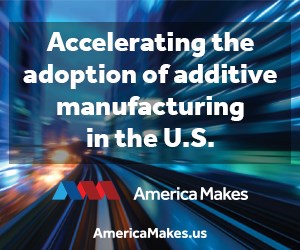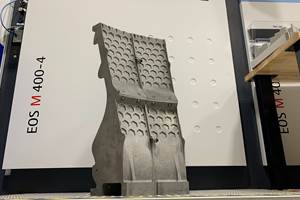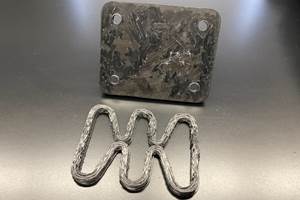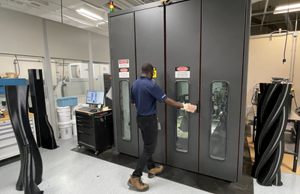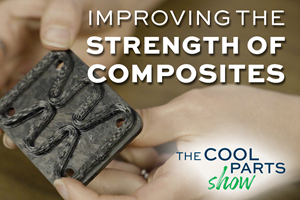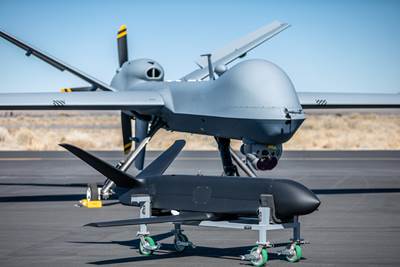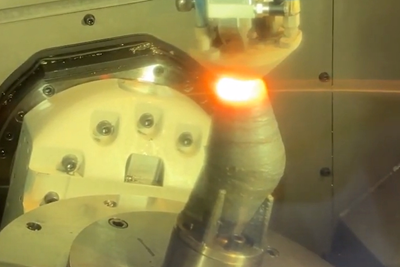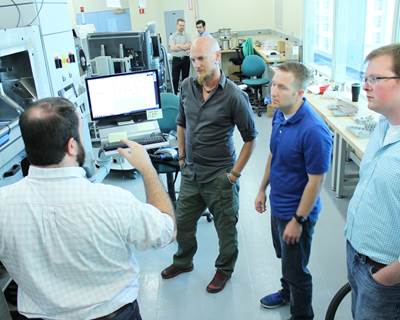Prolay 7Q 3D Offers PLTM Technology for Polymer, Composite Additive Manufacturing
The Prolay 7Q can produce components 1.5 to 5 times faster than conventional AM methods and produce parts with different layer thicknesses in a single process.
Share
Read Next
Prolay, a subsidiary of Bibus Menos, a Polish-Swiss company specializing in pneumatics, mechatronics, industrial automation and additive manufacturing (AM), has developed the Prolay 7Q industrial 3D printer.
The Prolay 7Q operates with the Progressive Layer Thickness Manufacturing (PLTM) technology, which is an advanced variant of the popular fused deposition modeling (FDM)/fused filament fabrication (FFF) method. This technology is known for its progressive layer thickness, which enables the printer to keep high-resolution surface finishes without sacrificing efficiency or durability.
Depending on the part geometry, the company says the Prolay 7Q can produce components 1.5 to 5 times faster than conventional AM methods. It can also produce parts with different layer thicknesses in a single process. The printer has a large build area of 725 × 450 × 500 mm, making it easy to produce large parts or multiple smaller ones at once.
The printer’s maximum chamber temperature reaches up to 190°C, which is crucial for processing high-temperature plastics. It features four printing heads with nozzle diameters ranging from 0.2 to 0.8 mm. The maximum temperature at which the extruder can operate is 400°C, ensuring compatibility with a wide range of commercial substances.
Layer heights range from 0.12 to 0.92 mm, giving users flexibility in balancing speed and finish quality. The Prolay system is compatible with various materials, including ABS, ABS-CF (carbon fiber-reinforced ABS), PC (polycarbonate), PC-CF (carbon fiber-reinforced polycarbonate) and PC-ABS (polycarbonate and ABS composite).
Prolay 7Q can mix up to three different materials in a single production process, which can be used to make strong composite configurations. This ability helps make thin layers of fiber-reinforced materials. For example, Prolay 7Q can print a PC shape at 0.1 layer thickness and then use carbon fiber filament inside.
Prolay is a brand of Bibus Menos, a Polish-Swiss company that started its business in Poland in 1994 as Menos. After several years, it became a part of the Bibus AG holding company, which is operating in more than 30 European and Asian countries. This strategic partnership enables the company to actively leverage over 60 years of experience and the multicultural expertise of the Bibus Group. Bibus Menos has been working in the field of 3D printing in Poland since 2005.
Prolay 7Q and PLTM technology are the results of research and development that started in 2017 as part of the project, “Development of a Faster 3D Printing Method to Reduce Production Costs and Improve Mechanical Properties while Keeping Optimum Quality.” This project was supported by the European Union through the European Regional Development Fund under the Intelligent Development Program 2014–2020.
Related Content
3D Printed Spares, Electrification and Cool Parts: Top 10 Stories of 2022: AM Radio #31
Our top articles and videos from 2022 reflect increasing use of additive manufacturing for replacement parts; growing applications for electric motors; and a maturing user base. Read through the top 10 list or listen to the AM Radio podcast episode all about these stories.
Read MoreTo Improve Performance of Compression Molded Composites, Add 3D Printed Preforms
9T Labs' Additive Fusion Technology enables the manufacture of composite structures with as much or as little reinforcement as is necessary, using 3D printed continuous fiber preforms to add strength just where needed.
Read MoreEaton Developing Carbon-Reinforced PEKK to Replace Aluminum in Aircraft Air Ducts
3D printable material will meet ESD, flammability and other requirements to allow for flexible manufacturing of ducts, without tooling needed today.
Read More3D Printed Preforms Improve Strength of Composite Brackets: The Cool Parts Show Bonus
On this episode, we look at a pin bracket for the overhead bin of an airplane made in two composite versions: one with continuous fiber 3D printed reinforcements plus chopped fiber material, and one molded from chopped fiber alone.
Read MoreRead Next
At General Atomics, Do Unmanned Aerial Systems Reveal the Future of Aircraft Manufacturing?
The maker of the Predator and SkyGuardian remote aircraft can implement additive manufacturing more rapidly and widely than the makers of other types of planes. The role of 3D printing in current and future UAS components hints at how far AM can go to save cost and time in aircraft production and design.
Read MoreHybrid Additive Manufacturing Machine Tools Continue to Make Gains (Includes Video)
The hybrid machine tool is an idea that continues to advance. Two important developments of recent years expand the possibilities for this platform.
Read More4 Ways the Education and Training Challenge Is Different for Additive Manufacturing
The advance of additive manufacturing means we need more professionals educated in AM technology.
Read More


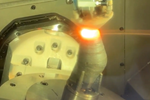
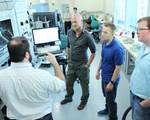
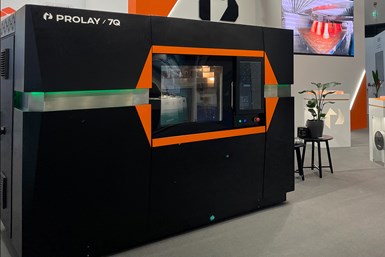
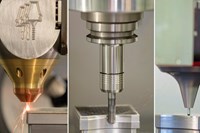
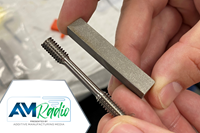





.png;maxWidth=300;quality=90)
